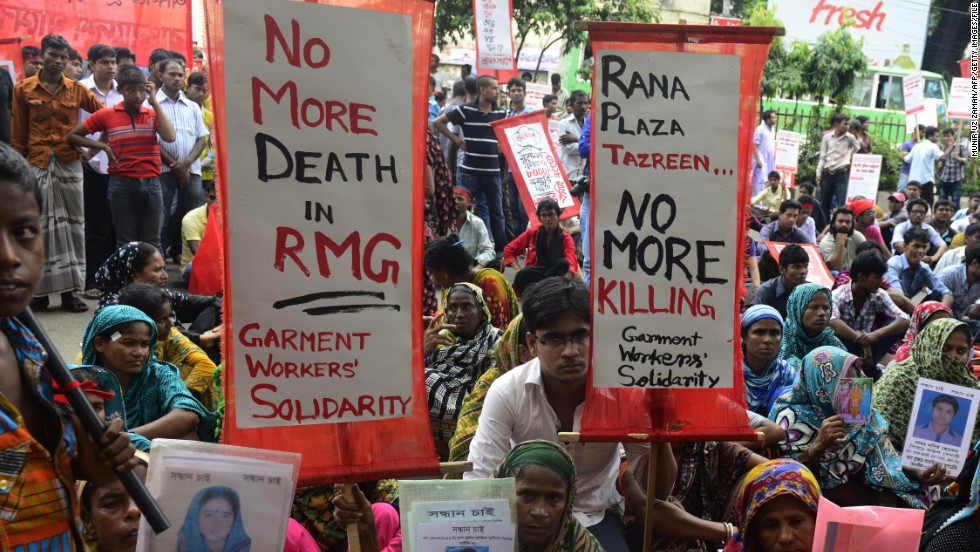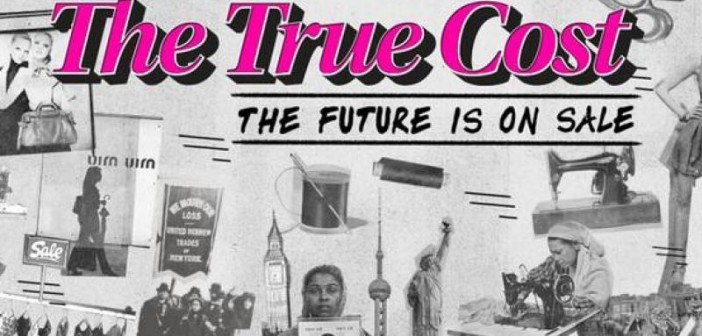I can’t deny it; after watching The True Cost directed by Andrew Morgan, I couldn’t organize my thoughts. Pain, disgust, and a desperate desire to make a change – all these emotions jostled inside me. With tears in my eyes I wanted to shout out loud: “People, what are we doing to ourselves?!” But I didn’t. In fact, I didn’t do anything about it. I just shared a post on Facebook and Twitter revealing the shocking reality that hides behind our collective T-Shirts. Yes, the very one you bought the other day from a high street shop. The result: a few likes and one comment, that was all. People don’t have time to stop and think about someone else’s problems because they need to deal with theirs. I get that.
Yet awareness is everything. Thanks to increased exposure via the internet, we can’t avoid the horrifying stories about sex slaves from India, sweatshop workers from Bangladesh, early marriages in Africa. Harrowing as this can be, it is a good thing. These are real stories, real people who are desperate for help and support. And the people behind your T-Shirt are in a similar position.
‘Fast fashion’ may be enticing for consumers but it is characterised by cheap material, cheap labour, and poor quality. It may shrink in the wash but at those prices, why not buy another throw away garment tomorrow? And not many of us know, or even care, that behind all of it are underpaid and undervalued workers, who get as little as $2 a day.
But it’s not just the low pay. Factory management has become notorious for using violence against workers who stand up to them. The work place can be dangerous too. Who can forget the collapse of Rana Plaza in Bangladesh in 2013 and shocking numbers of deaths? It isn’t even a surprise anymore.
Despite fears surrounding safety, sweatshop employees are forced to go back to work in order to provide for their families. I will never forget the scene from The True Cost when one of the Indian workers has a small child by her, sitting workshop floor, as she works. Such women don’t have the option of sitting at home with their new-born. They can’t even leave their children at a nursery or with a babysitter – there is no such a thing.
The consequences of this situation are terrifying and will lead to a global tragedy. Yet only a few people and organisations are trying to tackle this issue. Safia Minney, founder of the Fair Trade fashion label People Tree, is one such person. As is Livia Firth, Creative Director of Eco-age, a sustainability brand consultancy and founder of Green Carpet Challenge (GCC). Lucy Siegle, author and journalist, is another prominent figure in the movement. They may come from different backgrounds and are working on different projects but they are all dedicated to making the world a better place and to supporting those who need aid the most.
But what is the real crux of the problem, is it our love of fashion, our blindness to the troubles of the manufacturing industry or is it in fact an unstinting hunger for money on the part of fashion labels?
Let’s be honest, expensive clothing, accessories and lifestyle do make us feel better about ourselves and happier for a moment. We may be buying different things, in different shops but we all seem to share a desire to be accepted by society, to be loved and appreciated by friends, and somehow fashion gives us this. This is why we work harder, we get a job that is better, and we get a house that is bigger. Our natural desire to be noticed is making us spend more and more money on clothing, accessories, travel, education, nice houses and cars.
Big companies and brands know about this attention-mania and utilise it perfectly by presenting beautiful adverts and selling an irresistible dream. We want to be part of this dream therefore we can buy it. Narcissism and materialism have become epidemics within our generation and there seems to be no vaccination against it.
I’m not telling anyone to stop buying cheap clothing. But I feel that somehow we have got lost somewhere. We’ve lost something important and meaningful in our lives. By running around, trying to please and impress everyone, we forgot about who we really are and what we really need. It doesn’t matter where are you from and how much you earn: sweatshop workers from India and Bangladesh or bankers and CEO’s of a big companies, at the end of the day we all want to come back to a nice house with food on a table, surrounded by the people we love and care for.
If you can’t help these poor people in India or Bangladesh, help someone who is near you: that old gentleman who sat down by himself in the coffee shop or old lady who needed a sit in a tube. Being kind costs nothing but can make a difference in someone’s life. Just try it, the world needs more of it.





